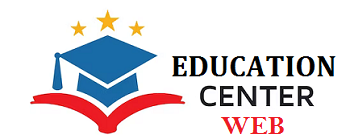In an increasingly competitive academic environment, parents often seek ways to enhance their children’s learning experiences, especially in subjects like mathematics.
With the rise of various educational programs, two popular options have emerged: math enrichment classes and math tuition. While both aim to improve students’ math skills, they differ in their approach, focus, and overall objectives.
This article explores the distinctions between a math enrichment class and math tuition, helping parents determine which option is right for their child.
Understanding Math Enrichment Classes
Math enrichment classes are designed to supplement the standard curriculum, providing students with opportunities to explore mathematical concepts beyond what is typically covered in school. T
hese classes focus on fostering a love for math through creative problem-solving, critical thinking, and hands-on activities.
Key Features of Math Enrichment Classes
1. Focus on Conceptual Understanding
Math enrichment classes emphasize a deep understanding of mathematical concepts rather than rote memorization.
Students engage in activities that promote critical thinking and problem-solving skills, allowing them to explore math in a more meaningful way.
2. Engaging and Interactive Learning
These classes often incorporate games, projects, and group activities that make learning math enjoyable and engaging.
By creating a stimulating environment, instructors encourage students to develop a positive attitude toward math and enhance their enthusiasm for learning.
3. Encouragement of Creative Thinking
In math enrichment classes, students are encouraged to think creatively and approach problems from various angles.
This focus on exploration helps students develop a growth mindset, allowing them to embrace challenges and view mistakes as learning opportunities.
4 Real-World Applications
Many math enrichment programs integrate real-world scenarios to demonstrate the practical applications of math concepts.
By connecting math to everyday life, students can better understand its relevance and importance, motivating them to learn.
5. Variety of Learning Styles
Math enrichment classes cater to diverse learning styles by incorporating various teaching methods and materials.
This flexibility ensures that all students, regardless of their preferred learning approach, can benefit from the program.
Benefits of Math Enrichment Classes
- Enhanced Problem-Solving Skills: Students develop critical thinking and problem-solving skills, which are essential for success in math and other subjects.
- Increased Confidence: By exploring math concepts in a supportive environment, students gain confidence in their abilities and are more likely to take on challenging problems.
- Greater Engagement: The interactive nature of math enrichment classes keeps students engaged and motivated to learn.
- Broader Understanding: Students gain a broader understanding of math concepts, helping them connect different topics and apply their knowledge to real-world situations.
Understanding Math Tuition
Math tuition, on the other hand, typically focuses on reinforcing the concepts taught in school. It often involves one-on-one or small group instruction, where students receive personalized attention to help them understand specific topics or prepare for exams.
Key Features of Math Tuition
1. Targeted Instruction
Math tuition classes aim to address specific learning gaps or challenges that students may face.
Tutors often tailor their lessons to focus on the areas where the student needs the most support, ensuring a personalized learning experience.
Exam Preparation
Many parents seek math tuition for their children to help them prepare for upcoming exams or standardized tests.
Tutors often provide practice materials and strategies to help students succeed in assessments.
3. Structured Learning Environment
Math tuition typically follows a more structured format, focusing on the school curriculum and aligning lessons with what students are learning in their classes. This structure can help students stay on track and reinforce their understanding of the material.
4. One-on-One Attention
One of the significant advantages of math tuition is the individualized attention students receive from tutors. This personalized support can help students address their unique challenges and learn at their own pace.
5. Flexible Scheduling
Math tuition classes often offer flexible scheduling options, allowing parents to choose times that best fit their child’s needs. This flexibility can be beneficial for families with busy schedules.
Benefits of Math Tuition
- Personalized Support: Tutors can provide individualized attention and support, addressing specific learning needs and challenges.
- Focused Learning: Math tuition allows students to focus on particular topics or skills, ensuring they have a strong foundation before moving on to more advanced concepts.
- Improved Grades: With targeted instruction and support, students often see improvements in their grades and overall academic performance.
- Confidence Building: As students receive personalized attention and guidance, they gain confidence in their math abilities, reducing anxiety related to the subject.
Comparing Math Enrichment Classes and Math Tuition
While both math enrichment classes and math tuition aim to improve students’ math skills, they differ in their approach and objectives. Understanding these differences can help parents choose the right option for their child.
1. Objectives
- Math Enrichment Classes: The primary goal is to enhance students’ overall understanding and appreciation of math. These classes focus on fostering critical thinking, creativity, and problem-solving skills.
- Math Tuition: The primary goal is to support students in their current curriculum and help them improve their grades. Tuition focuses on reinforcing concepts taught in school and preparing students for exams.
2. Teaching Approach
- Math Enrichment Classes: These classes often employ a hands-on, interactive approach to learning. Students engage in collaborative activities and creative problem-solving exercises, promoting a deeper understanding of math concepts.
- Math Tuition: Tuition tends to follow a more structured approach, focusing on individualized instruction and targeted support. Tutors often provide direct instruction, practice exercises, and test preparation.
3. Learning Environment
- Math Enrichment Classes: The environment is typically more relaxed and encourages exploration and creativity. Students are often encouraged to work together and share ideas, fostering a sense of community.
- Math Tuition: The environment may be more formal and focused on individual learning. Students may work independently with their tutors, concentrating on specific skills or topics.
4. Flexibility
- Math Enrichment Classes: These classes may offer a range of topics and activities, allowing students to explore various aspects of math. This flexibility can keep students engaged and motivated to learn.
- Math Tuition: Tuition classes often have a more rigid structure, focusing primarily on the school curriculum. This focus can limit the exploration of other math-related topics.
5. Cost
- Math Enrichment Classes: The cost of enrichment classes can vary widely based on the program and location. Parents should consider the value of the experience and the potential benefits to their child.
- Math Tuition: Tuition rates can also vary based on factors such as the tutor’s qualifications and experience. Parents may find that one-on-one instruction is more expensive than group enrichment classes.
Determining the Right Fit for Your Child
Choosing between math enrichment classes and math tuition ultimately depends on your child’s needs, learning style, and goals. Here are some factors to consider when making your decision:
1. Assess Your Child’s Strengths and Weaknesses
Understanding your child’s math abilities is crucial in determining which option may be more beneficial. If your child struggles with specific topics and requires targeted support, math tuition may be the better choice.
Conversely, if your child has a solid foundation but seeks to explore math concepts in greater depth, an enrichment class may be more suitable.
2. Consider Your Child’s Learning Style
Every child learns differently. If your child thrives in collaborative and interactive environments, a math enrichment class may be the best fit.
On the other hand, if they benefit from personalized attention and direct instruction, math tuition might be more effective.
3. Evaluate Goals and Expectations
Consider your goals for your child’s math education. If the focus is on improving grades and preparing for exams, math tuition may align better with those objectives.
However, if you want your child to develop a love for math and engage in creative problem-solving, an enrichment class may be the way to go.
4. Explore Local Options
Research local programs to see what math enrichment classes and tuition options are available. A list of student care centres in Singapore can provide insight into local resources, helping you find programs that align with your child’s needs.
Many student care centres also offer additional enrichment activities, such as science enrichment and coding classes Singapore, which can further enhance your child’s learning experience.
5. Trial Classes
Consider enrolling your child in trial classes for both math enrichment and tuition. This experience can help you gauge your child’s interest and engagement in each format, providing valuable insights into which option may be more suitable.
6. Communicate with Instructors
If possible, communicate with instructors or tutors to understand their teaching methods and philosophies. Their insights can help you determine whether their approach aligns with your child’s learning style and needs.
Conclusion
In the debate between math enrichment classes and math tuition, there is no one-size-fits-all solution. Each option offers unique benefits and caters to different learning needs and goals.
By understanding the differences between the two and considering your child’s individual strengths, weaknesses, and preferences, you can make an informed decision that best supports their math education.
As you explore local resources, consider the variety of enrichment and tuition options available, including a coding class Singapore, which can complement your child’s learning journey.
Ultimately, the goal is to foster a positive learning experience that encourages growth, confidence, and a lifelong love for math. By investing in your child’s education, you’re setting them up for success in both their academic and personal endeavors.

